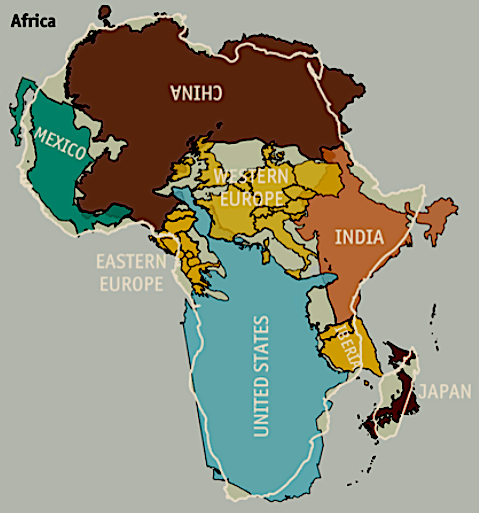Africa is rapidly becoming one of the frontrunning emerging markets. Within the last few years, the conversation about commerce on the continent has evolved from naming challenges to identifying opportunities.
It comes as no surprise that African nations, such as Nigeria, that have a growing GDP and population have garnered interest from multinational companies across the globe that are looking to venture into business in Africa.
While the reasons for conducting business in countries such as Nigeria are numerous, the list of reasons why international companies should consider doing business in Africa, in general, is just as compelling.
As successful companies apply resilient growth strategies to win in Africa, new entrants want to know where the opportunities are and why Africa is the fastest growing region in the next decade.
Here are the top reasons why your organization needs to prioritize business in Africa.
1. The fastest growing region in the next ten years
By 2050, Africa is expected to harbor the world’s most powerful economies and have a total GDP of $29 trillion.
While the continent has experienced a slowdown of economic growth in recent years due to a drop in commodity prices, the region holds the countries with the biggest growth potential between now and 2030.
There are two major indicators that highlight this emergence of opportunity for businesses across the continent.
The first being that six out of ten of the globe’s fastest growing economies are in 2018 were in Africa — with Ghana at the top of the world ranking.
The second reason why businesses are including Africa in their global strategy is the constantly improving business conditions.
In the World Bank’s 2019 Doing Business index, five of the 10 most improved countries are in Africa. It is important to state that 264 reforms were implemented in 190 countries in 2018, and of these, about 83 were implemented in Africa – one-third of all reforms recorded globally.
2. Africa is a vast emerging market
The continent is expected to reach a population of 2 billion by 2050 with half of that population residing in urban areas.
Africa also boasts a growing middle class that has more disposable income than previous generations – all within a land area which exceeds that of Europe, China, India, and the United States combined.

Companies seeking to invest in on-ground operations will reap the benefits of navigating the continent’s scale and complexity.
3. Youthful and rapidly urbanizing
There are two demographic trends that make Africa a promising growth market – its youthful population and the rate of urbanization.
Of the 1.2 billion inhabitants, 60% of its population is under the age of 25. This makes it the youngest population in the world.
This presents an opportunity for companies that are in search of a new and emerging customer base that would be trying new products and services as they get more income.
Along with this youthfulness, is the increasing urbanization. By 2020, Africa will have over 80 cities with more than a million inhabitants.
There are currently 9 African cities with 5 million inhabitants. This number of African cities will double to 18 cities by 2030. Fast-paced urbanization is an important trend.
It’s one reason why companies should make cities a central focus of their African expansion plan. It should be noted that per capita consumption in Africa’s large cities is nearly double the average of these cities’ host countries.
4. Improved governance with a focus on diversification
Over the last decade, several African countries have prioritized democratic ideals in regions that were once conflict-ridden.
Also, a drop in global commodity prices in recent years caused a recession in major economies around Africa.
These improved governments are now creating incentives and improving business conditions in their home-countries to attract more investors.
Part of the on-going improvements includes the focus on diversifying the economic landscape. A shift that drives more value-addition to industries that were once only commodity-based.
More money is being invested in various industries, thereby creating opportunities for multinational firms who may not be operating in the oil, gas, and mining industries.
Firms now have the opportunity to leverage favorable national policies and increased availability of a growing workforce to expand their global footprint as Africa become more industrialized.
5. The infrastructural boost: Africa is getting connected
The infrastructure needed to unlock Africa’s true economic potential is currently lacking.
It is clear that bridging the gap between Africans and the market while simultaneously reducing the cost of trade is not only necessary but also a major opportunity for new entrants.
The first step towards connecting isolated markets across Africa is already in motion with the leaders of 54 African nations signing the Africa Continental Free Trade Agreement (ACFTA)
This agreement would see inter-trade between African markets increase and possibly set-up the largest free trade agreement since the creation of the World Trade Organization.
6. There is a digital revolution occurring
Africa remains the largest adopter of mobile phones.
For consumers in Africa, the mobile phone is not just a communication tool. It is also the primary portal to internet access and other life-changing services such as banking, healthcare, and education.
Mobile adoption in the region has grown rapidly in recent years: overall subscriber penetration reached 44% in 2017, up from just 25% at the start of this decade. This subscription rate of unique mobile subscribers is projected to reach 63% by 2025.
This increased adoption of mobile connectivity presents numerous opportunities for communication and information service providers as well as computing and mobile device manufacturers, network operators, and internet providers.
These opportunities are not only present for companies in the IT space. Any company that is ready to build a relationship with a growing consumer base that continues to become more digitally-savvy will reap the benefits of this growing trend.
7 . Business in Africa has a deeper purpose
Aside from the economic benefits of conducting business in Africa, companies have the opportunity to enact real change.
The reality is this – Africa is a continent with the largest number of people still living in extreme poverty.
Therefore, by creating jobs in areas that greatly need it, organizations will be actively involved in raising the standards of living of a good portion of the population.
Not just in Africa, but in the world.
For organizations that are looking to build innovative business models, Africa is a great investment. Companies that can tie up bottom-line driven objectives with community building, will build businesses that will bring high returns to all stakeholders involved.
This will find organizations leading the way and being at the forefront of economic empowerment as they provide the foundation to lift communities.
Developing a sustainable strategy to win in Africa
It is clear that the benefits associated with doing business in Africa are numerous.
As a continent that is experiencing exponential growth, is committed to diversifying their investment in other industries, and has young and engaged consumer base with greater buying power than previous generations, companies will have ample opportunities to grow their business if they choose to enter the African market.
By applying innovative strategies to win in Africa’s local markets, you should be monumental in leading your organization’s expansion and reach across the continent that would bring vast opportunities to those who dedicate time to unlocking its true potential.

